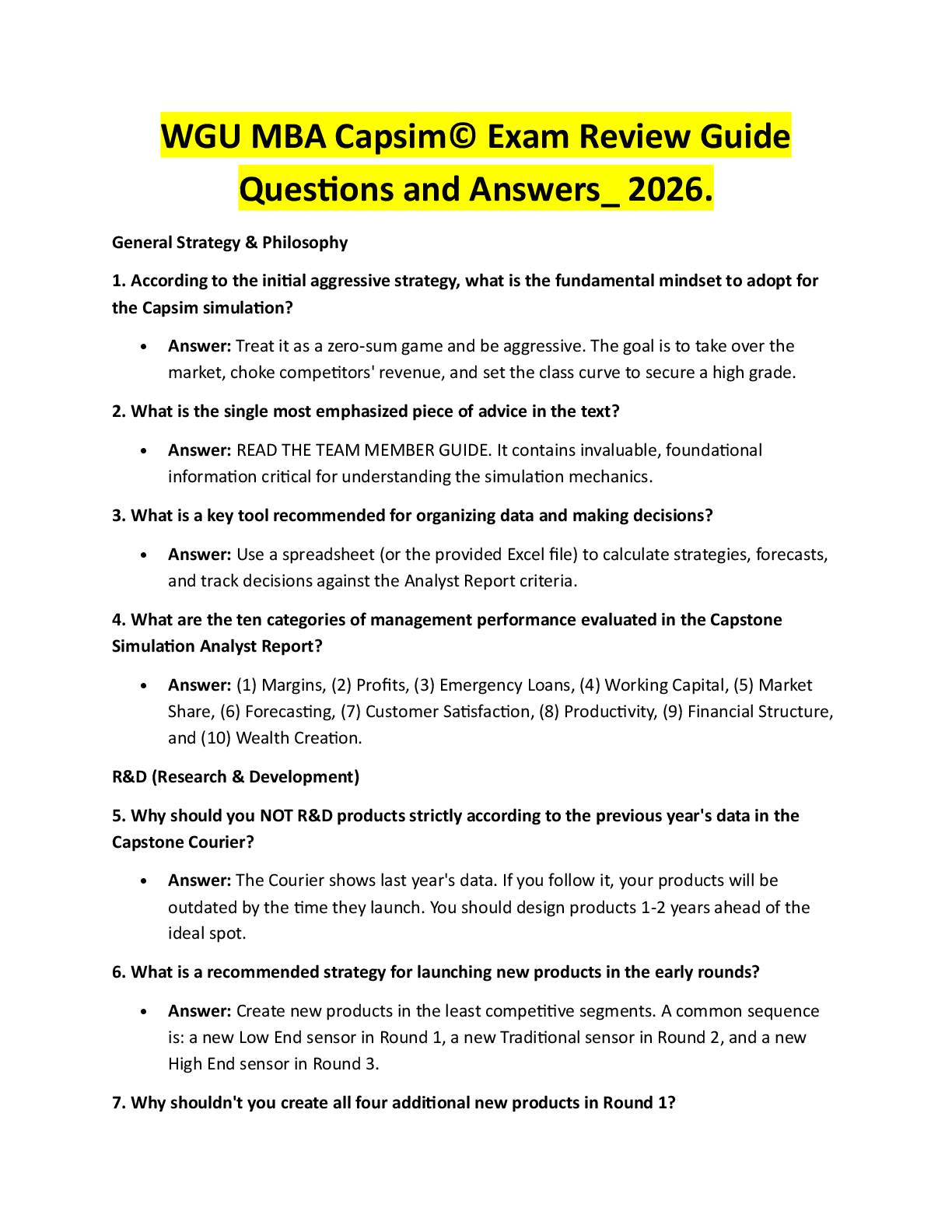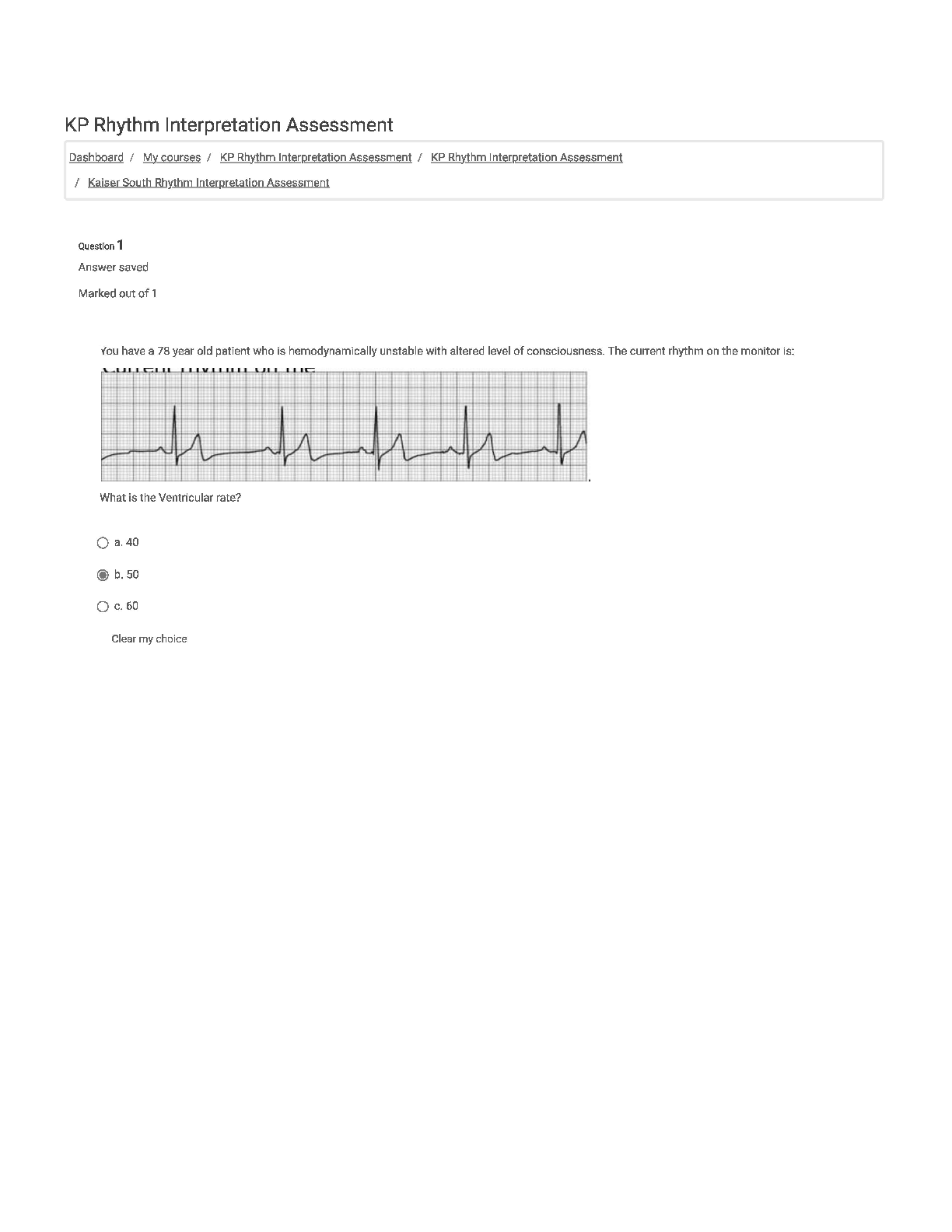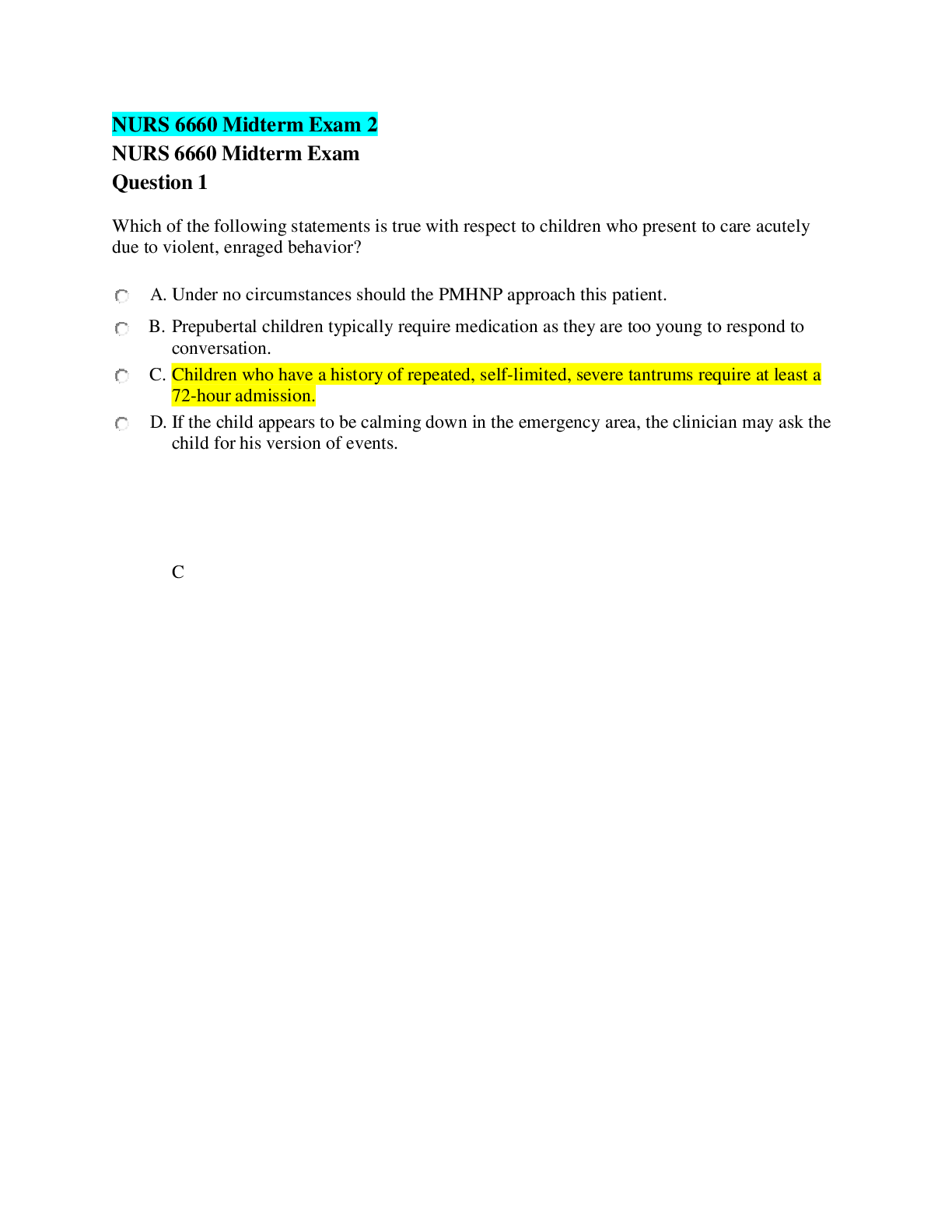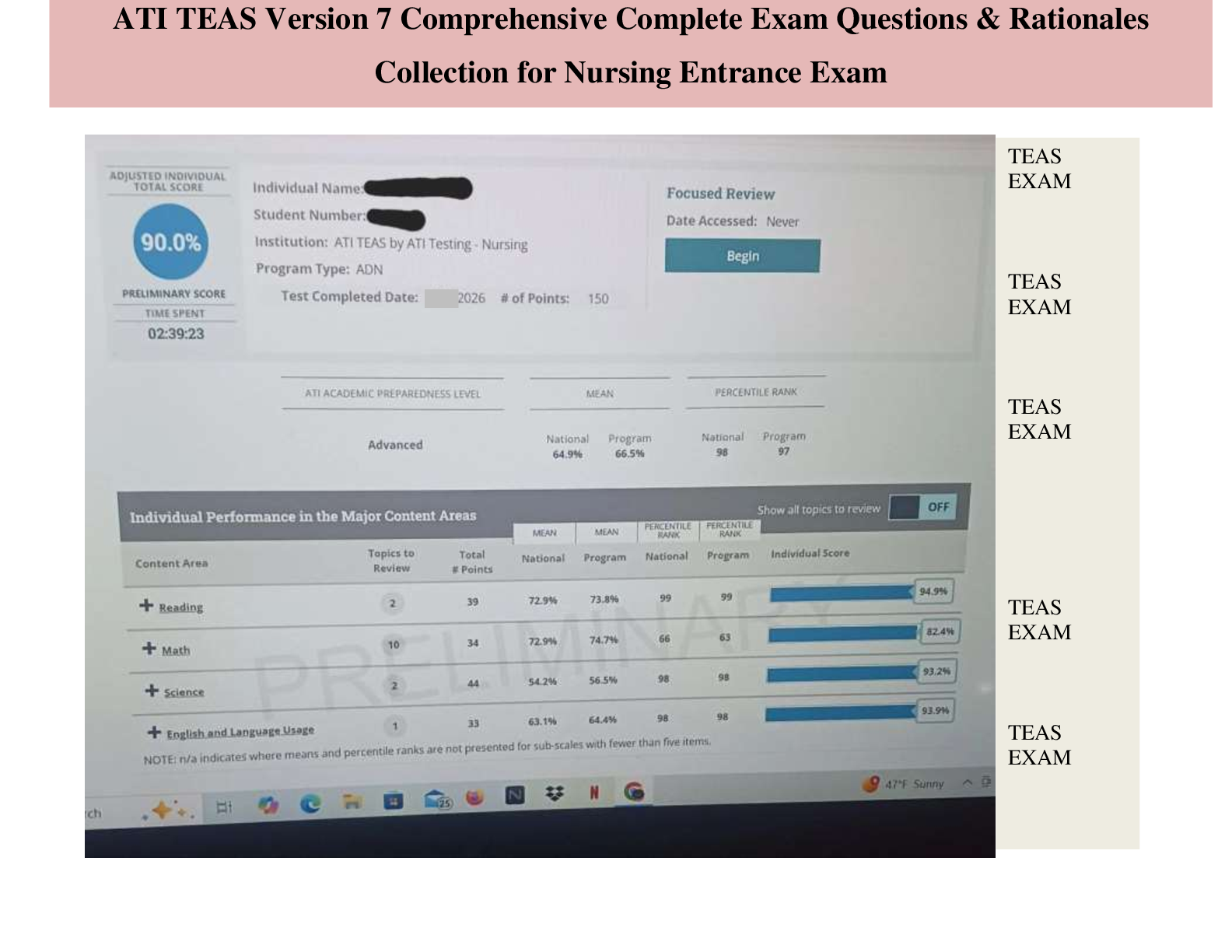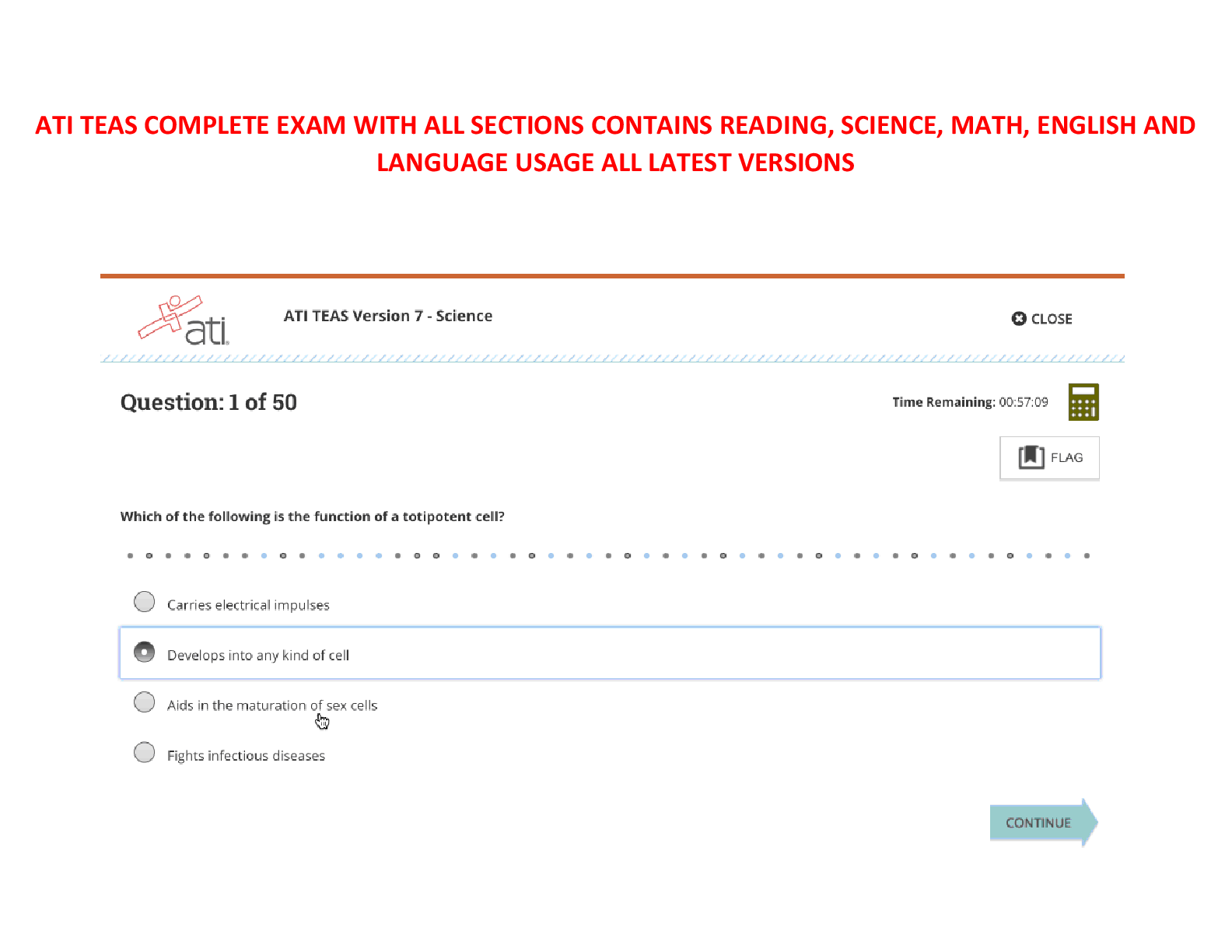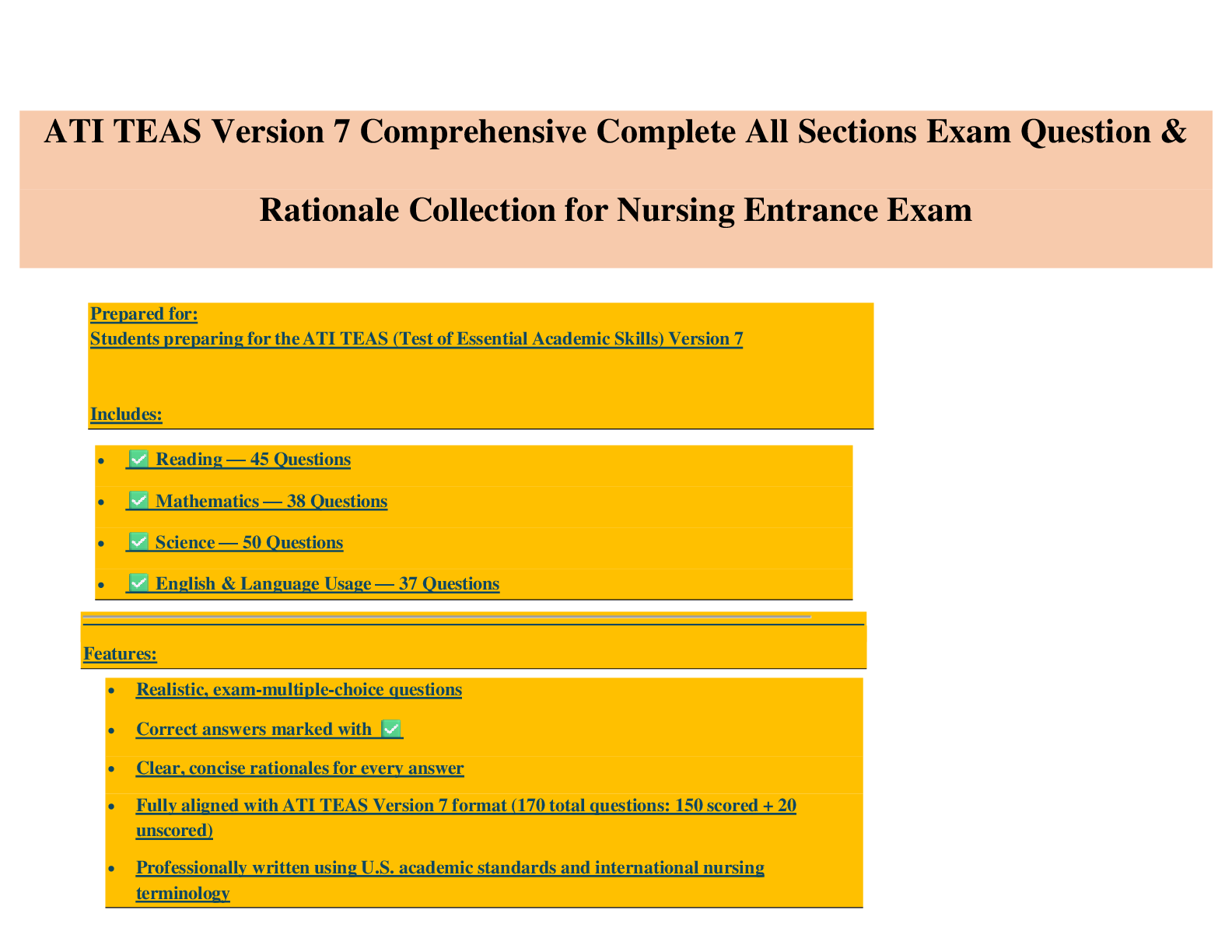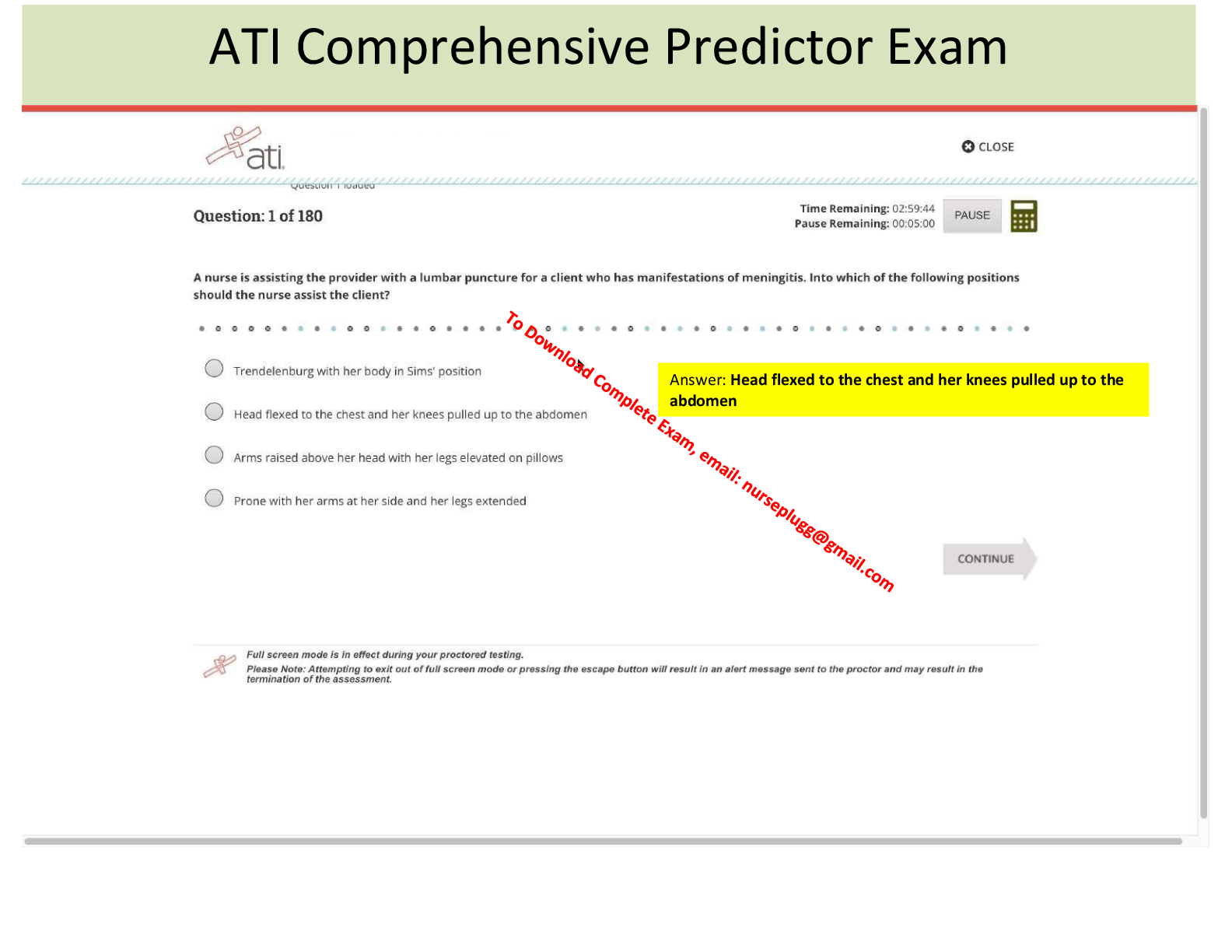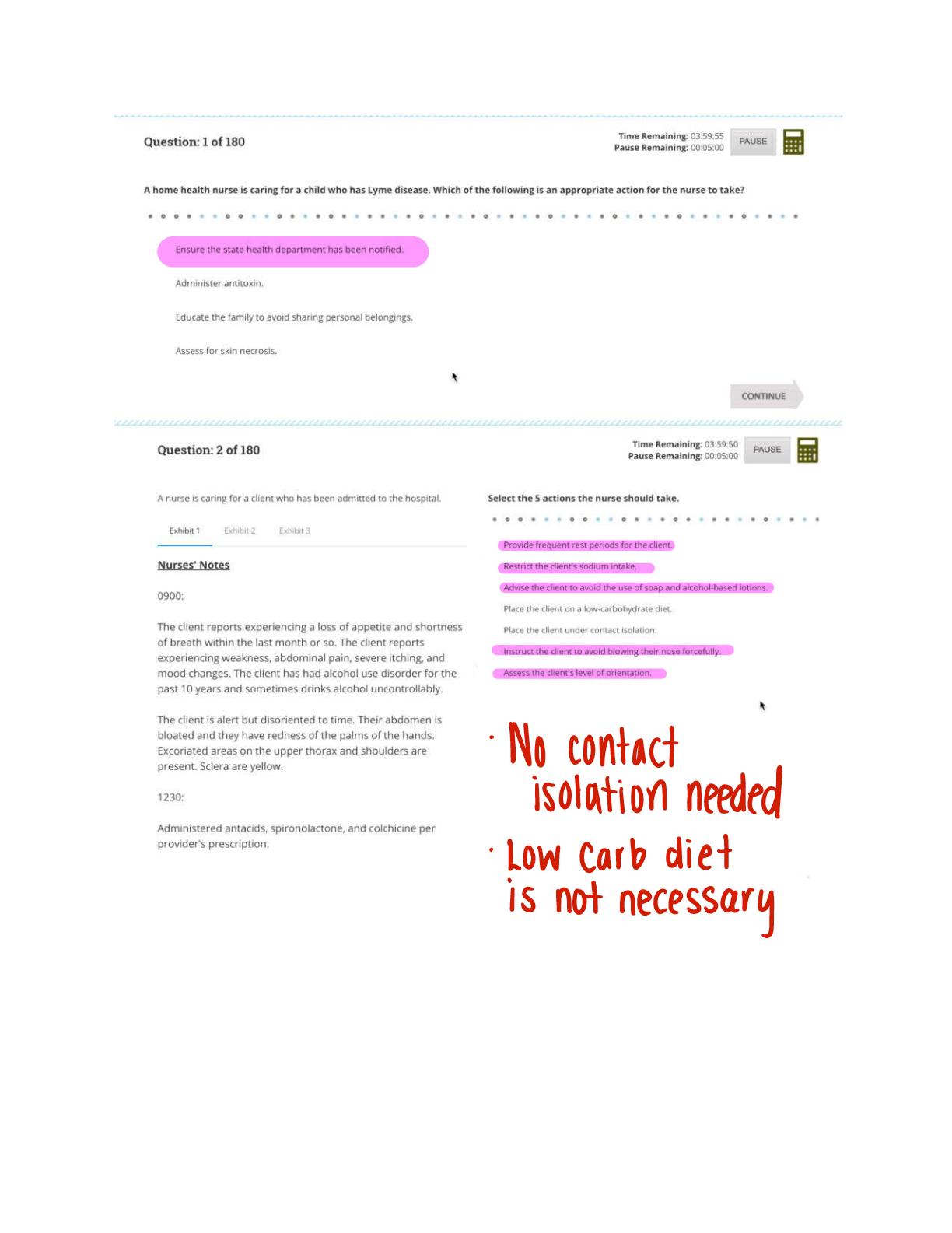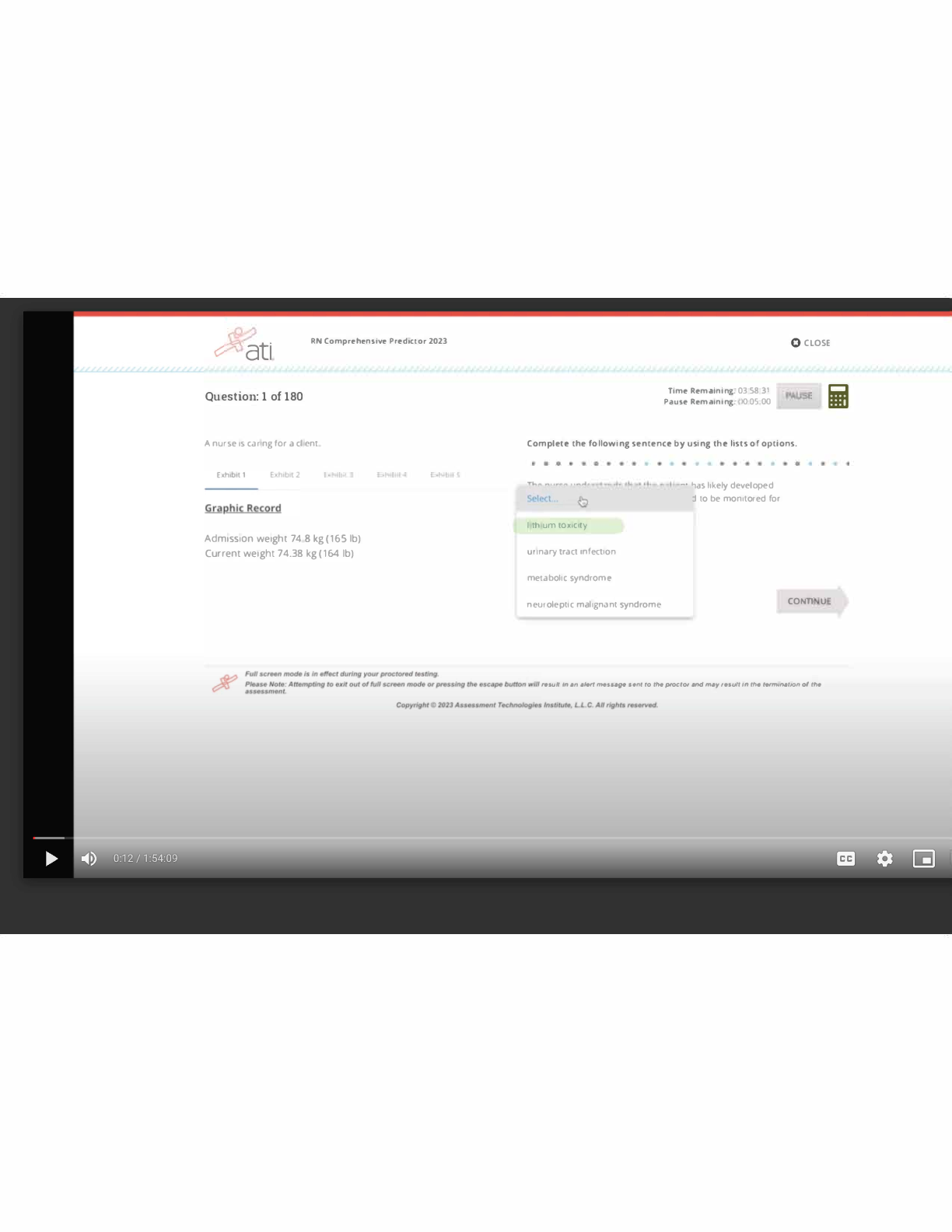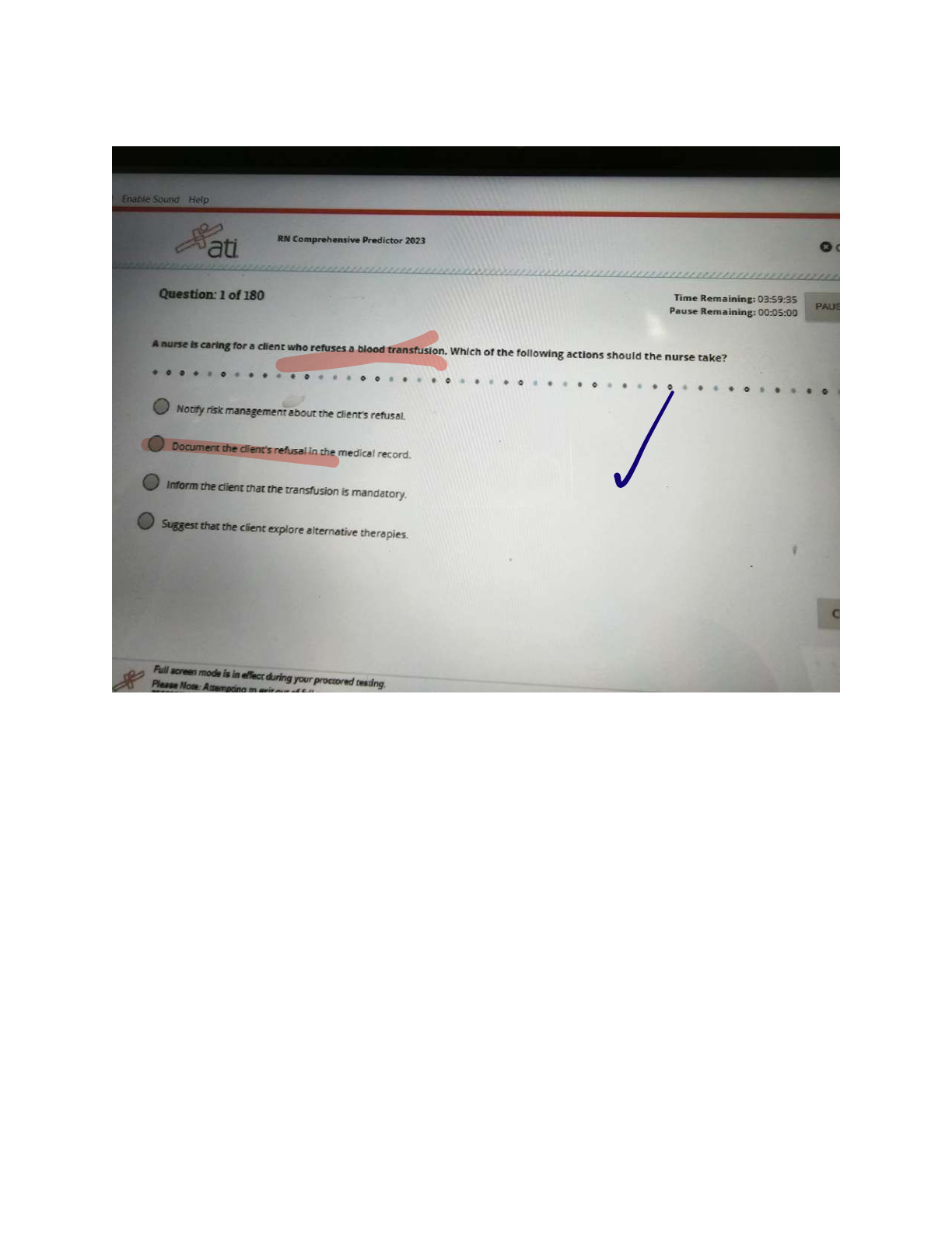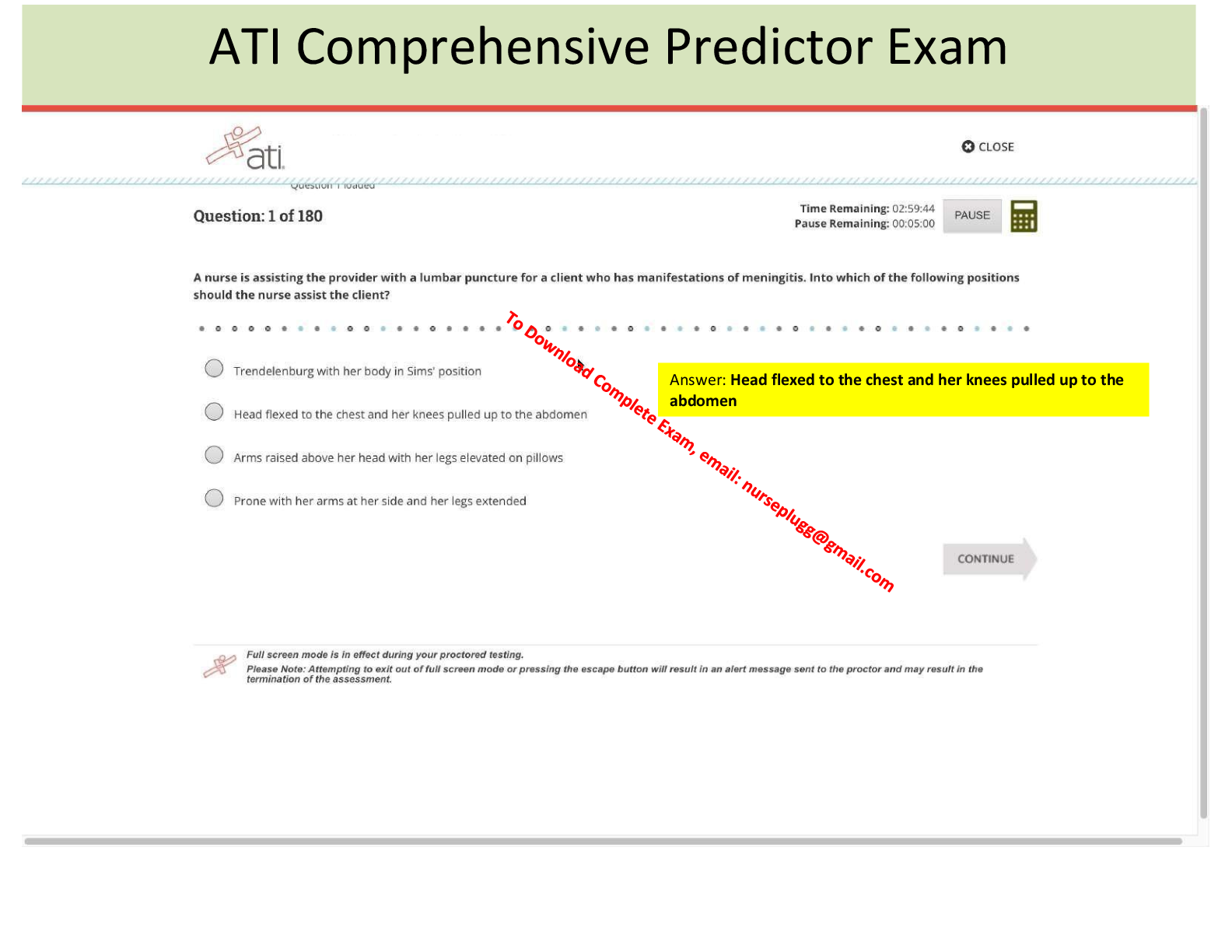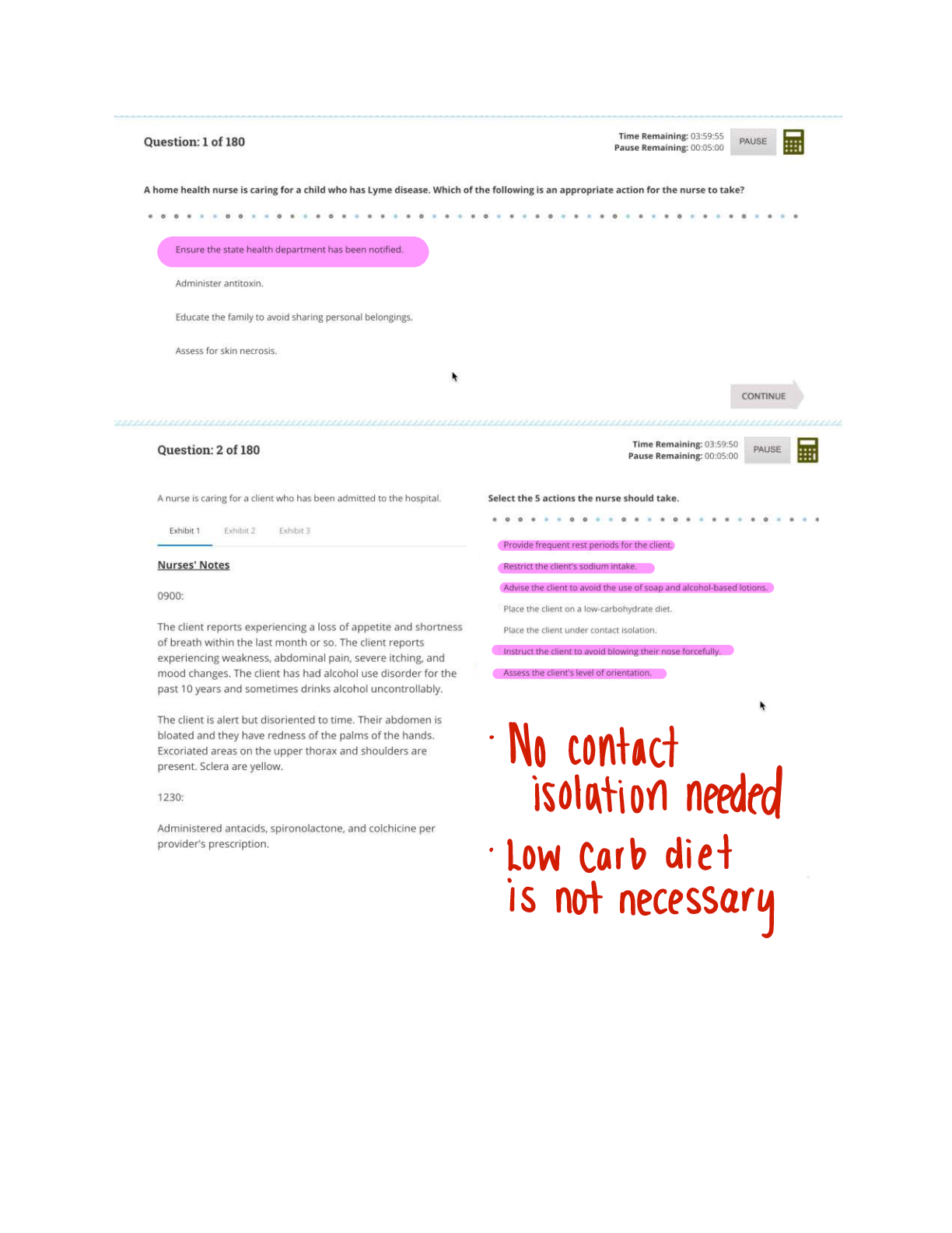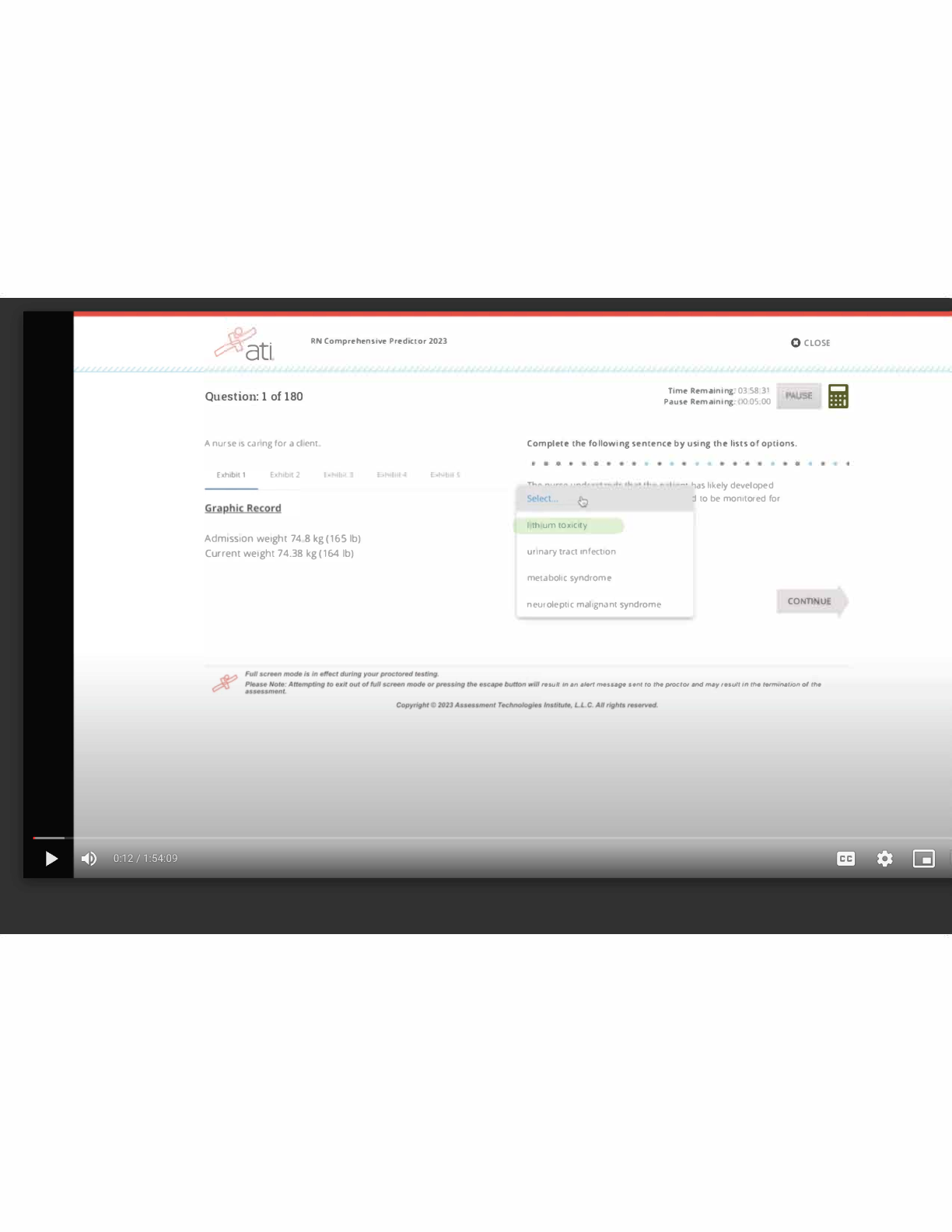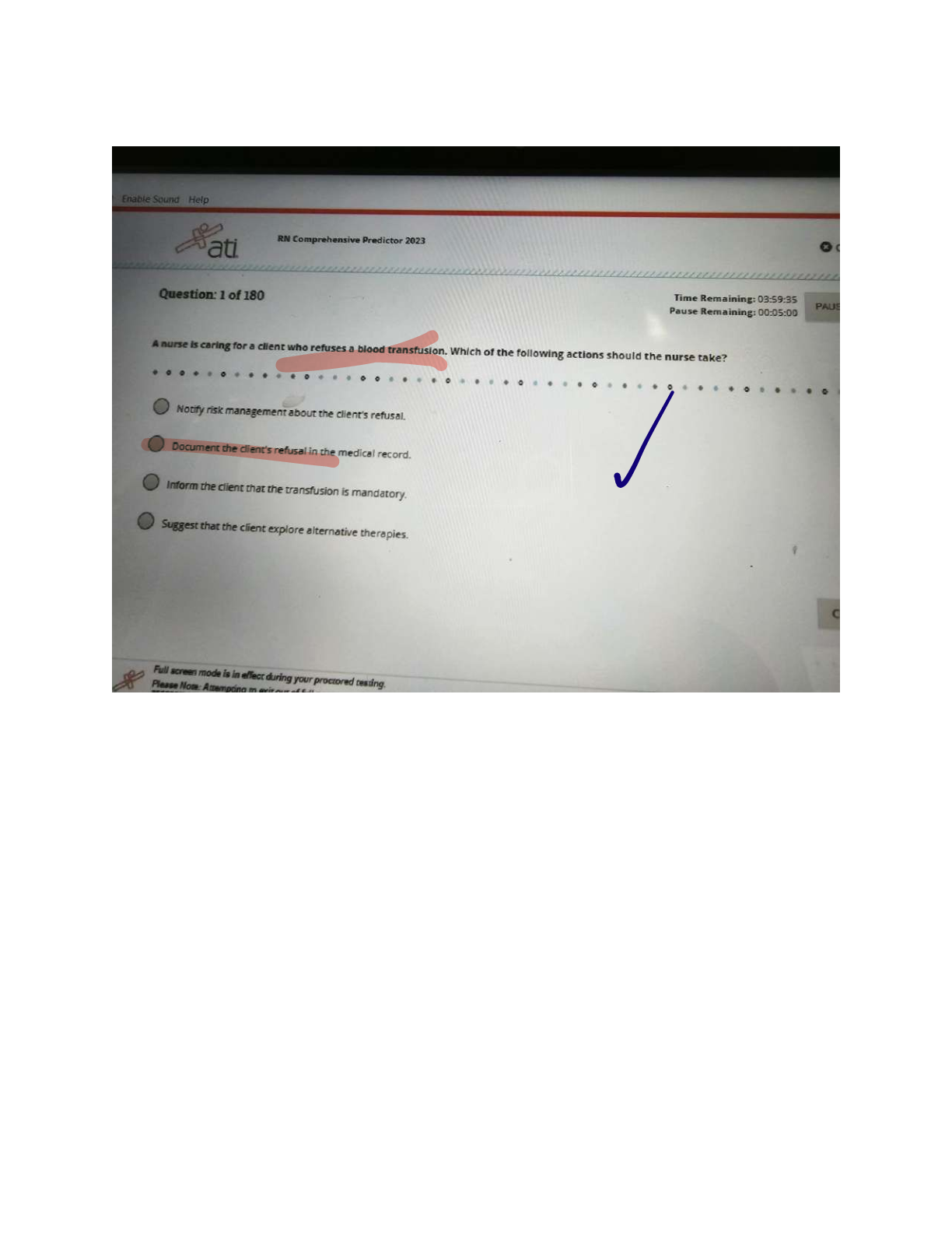HIST 405 Final Exam
The Spanish who settled in Florida and New Mexico were primarily (Points : 2)
conquistadors.
merchants.
missionaries.
plantation owners.
Question 2.2. (TCO
...
HIST 405 Final Exam
The Spanish who settled in Florida and New Mexico were primarily (Points : 2)
conquistadors.
merchants.
missionaries.
plantation owners.
Question 2.2. (TCO 1) What made Rhode Island unique? (Points : 2)
Religious dissenters founded the colony.
Colonists bought the land from Native Americans.
Suspected witches were tried and executed there.
Colonists agreed to separate church and state.
Question 3.3. (TCO 4) Slave traders from the colonies (Points : 2)
supported the kidnapping of Africans.
directly seized Africans for enslavement.
worked to remedy the poor conditions of the Middle Passage.
profited from the poor conditions of the Middle Passage.
Question 4.4. (TCO 4) The French and Indian War was also called (Points : 2)
King George’s War.
Seven Years’ War.
Pontiac’s Rebellion.
the Pequot War.
Question 5.5. (TCO 2) At the First Continental Congress, delegates, such as Patrick Henry and John Adams, encouraged colonists to think of themselves as (Points : 2)
Americans.
Britons.
Virginians.
New Englanders.
Question 6.6. (TCO 2) In the Declaration of Independence, Jefferson refers to the natural rights due to every citizen as (Points : 2)
life, liberty, and the pursuit of happiness.
independent liberty.
Paine’s freedoms.
radical power.
Question 7.7. (TCO 2) Which is an advantage the British had over the Patriots at the beginning of the war? (Points : 2)
The British people believed more passionately in the war.
The British army respected the people they were fighting.
The British government was more established.
The British king had a brilliant military mind.
Question 8.8. (TCO 1) Why was it difficult to make changes to the Articles of Confederation? (Points : 2)
An amendment required approval by all 13 states.
The Articles did not provide for amending the constitution.
Two thirds of the delegates had to agree in order to amend the Articles.
The states had to convene a special committee to revise the Articles.
Question 9.9. (TCO 1) The Three-Fifths Compromise benefited _____ states. (Points : 2)
large
small
northern
southern
Question 10.10. (TCO 3) The Corrupt Bargain of 1824 secured the presidency for (Points : 2)
Andrew Jackson
John Quincy Adams
Henry Clay
William Crawford
Question 11.11. (TCO 3) The creation of an integrated national economy became known as (Points : 2)
mercantilism.
price fixing.
the rise of factories.
market revolution.
Question 12.12. (TCO3) The bloodiest slave uprising in U.S. History was (Points : 2)
Nat Henthoff’s Rebellion.
The Slave Rebellion of 1831.
Nat Turner’s Rebellion.
The Market Revolution.
Question 13.13. (TCO 3) Who led the Texans in drawing Santa Anna into a trap at the Battle of Jacinto? (Points : 2)
Stephen F. Austin
Jim Bowie
Sam Houston
Davy Crockett
Question 14.14. (TCO 2) Congress tried to resolve the dispute between the North and the South about slavery in the territories by (Points : 2)
repealing the Wilmot Proviso.
adopting the Wilmot Proviso.
adopting the Compromise of 1850.
repealing the Compromise of 1850.
Question 15.15. (TCO 2) In 1856, Border Ruffians attacked (Points : 2)
a New York abolitionist named John Brown.
a group of southern farmers.
Senator Charles Sumner.
the antislavery town of Lawrence, Kansas.
Question 16.16. (TCO 8) Lee's smaller army defeated McClellan's larger force and kept Union troops out of Richmond because (Points : 2)
Lee was lucky.
McClellan surrendered.
Lee found McClellan’s battle plans.
McClellan was too cautious.
Question 17.17. (TCO 8) Which of the following characterizes Sherman's march across Georgia? (Points : 2)
He took the shortest, narrowest route.
He only destroyed Confederate military sights.
He destroyed everything in his path.
He tried to negotiate with southerners.
Question 18.18. (TCO 10) Many immigrants came to the U.S. to avoid (Points : 2)
inexpensive land.
political revolutions.
religious freedom.
plentiful employment.
Question 19.19. (TCO 10) How did the Triangle Shirtwaist Factory fire affect industrial reforms? (Points : 2)
Managers began locking the exits of factories.
Progressives began to focus on other areas for reforms.
Congress passed laws that increased the work day to 12 hours.
Cities and states began passing laws to make workplaces safer.
Question 20.20. (TCO 7) The invasion of Belgium turned American opinion against Germany because (Points : 2)
many Americans were immigrants from Belgium.
Americans depended on products imported from Belgium.
Belgium was an important U.S. ally.
Belgium was a neutral nation.
Question 21.21. (TCO 7) What was the name of the agreement that ended World War I? (Points : 2)
the Fourteen Points
the League of Nations
the Treaty of Versailles
the Paris Peace Conference
Question 22.22. (TCO 11) This trial became a symbol of the conflict within Protestantism between modernists and fundamentalists. (Points : 2)
Scopes Monkey Trial
Sacco and Vanzetti Trial
Fatty Arbuckle Trial
None of the above
Question 23.23. (TCO 11) Prohibition was enforced by the (Points : 2)
Volstead Act.
Kellogg-Briand Act.
National Industrial Recovery Act.
None of the above
Question 24.24. (TCO 11) Which economic factors led to the Great Depression? (Points : 2)
Underproduction, disparity of wealth, low interest rates, and low stock speculation
Underproduction, high consumption, low interest rates, and high stock speculation
Overproduction, disparity of wealth, limited money supply, and high stock speculation
Overproduction, high consumption, limited money supply, and low stock speculation
Question 25.25. (TCO 7) The three Allied leaders of World War II were (Points : 2)
Stalin, Eisenhower, and Churchill.
Stalin, Hitler, and Mussolini.
Roosevelt, Eisenhower, and Stalin.
Roosevelt, Stalin, and Churchill.
Page 2
Question 1. 1. (TCOs 1 and 2) Identify and analyze at least two major actions taken by the English Parliament during the 1760s that angered the colonists, and discuss specifically at least one act that dealt with what the colonists viewed as unfair taxation. Then discuss the significance to the colonists of the Tea Act and the Coercive Acts and why these particularly galled the colonists. Make sure you use enough details to support your answer. (Points : 50)
Spellchecker
Question 2. 2. (TCO 2) Identify and analyze the Dred Scott decision. Be sure to discuss the political reaction to this decision. Then analyze the election of 1860 and how the controversy over slavery divided the party into northern and southern branches. Analyze the ascendency of Abraham Lincoln to the presidency. Be sure to use enough details to support your answer. (Points : 50)
Spellchecker
Question 3. 3. (TCOs 6 and 7) Identify and explain at least two causes of World War I. Then analyze the events that drew the United States into World War I. Evaluate America’s contribution to the war effort and to what extent America’s entry contributed to the end of the war. Make sure you use enough details to support your answer. (Points : 50)
Spellchecker
Question 4. 4. (TCOs 7 and 9) Identify and analyze the main events of the Korean War and Cuban Missile Crisis. Then assess how these events affected the relationship between the United States and the Soviet Union. Make sure you use enough details to support your answer. (Points : 50)
[Show More]



